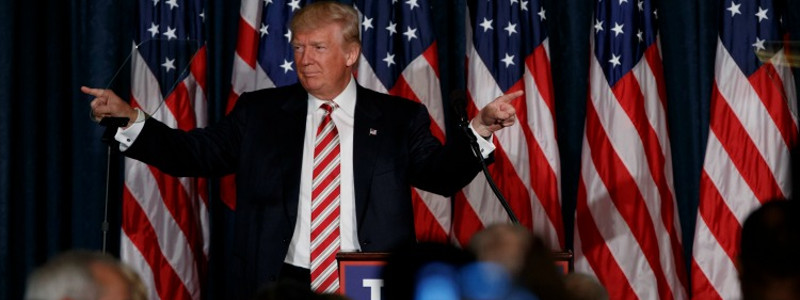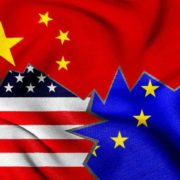Any doubt of the global influence of the Catholic Church is being shed in these days with widespread attention to the news of Theodore McCarrick’s recent forced resignation from the college of Cardinals for his involvement in a widening sex abuse scandal.
There certainly is universal outrage for an institution, the Church, that should have protected children and where conversely child molesters were absconded if not shielded.
On the other hand, the massive attention to this story, now over a decade old, proves how important the Church is for the lives of billions, how many hopes are pinned on its values and what its weight in the worldwide public discourse is.
In fact, when it started, the sex abuse scandal looked as if it could undermine the Church, bankrupting it financially and morally. Now it looks like even the gravest episodes can prove the Church resolve to meet and overcome its challenges.
That is: McCarrick’s resignation does not humiliate the Catholic Church, it humbles it. And humility is the force of the Church, thus her greatness is proven and strengthened once again.
This trend feeds and is fed by the steady rise in the international profile of the Vatican and the Pope in the past years, the “field hospital”.
This is also grounded in deep historical roots: the steady failure in global leadership of the US, of the existing international organizations created by the US at the end World War 2 since the 2002 Iraqi War.
There seems to bea growing deep cultural and spiritual void, even more important than the political and economic weakening of the US power vis a vis a possibly new rising power like China. Here president Donald Trump, divisive at home and abroad, apparently unable and unwilling to bring together his people and allies, is only the latest development.
The history briefly is this:
Shortly put, after the end of the Cold War, and with the beginning of the Clinton administration, the US gave a massive political push to the process of globalizing the economy and trade. The conversion of the old GATT (General Agreement of Tariffs and Trade) into the WTO (World Trade Organization) was part of that effort. Then, America thought it could apply its own investment and trade rules to everybody. It was a time when people thought the world was flat, and this flatness was boosted by the expansion of the Internet and mobile communications.
This process hit its first major snag with the 1997–98 Asian financial crisis. Speculators managed to force the devaluation of the mighty Japanese yen (then the second most important currency in the world) but failed to fell the then much weaker Chinese yuan, which was protected by primitive administrative measures.
Moreover, since the late 1990s, it was becoming clear that China was benefitting more than the US from the new trade freedom, by flooding America with ever cheaper exports. Also, the spread of the US dollar was arrested by the birth of a new currency, the euro, which would settle exchanges in the largest economic area in the world, Europe.
This was certainly not enough to stop America, but it was something unexpected. The world was not orderly following American wishes.
These difficulties on the economic front were compiled with even bigger problems in international politics.
Since 2001, there have been wars in Afghanistan and Iraq, and there was the wave of the Jasmine revolutions in the Middle East. All failed to produce the expected results. Central Asia and the Middle East did not become democracies or a paradise for new trade and communications.
But neither did a major clash of civilization start against a new paramount enemy, like the former USSR. The Muslim threat was not a real geopolitical challenge, it was more like the ghost of communism/anarchism in the 19th century, something that so far failed to materialize.
That is, America failed to impose on the world new economic and clear political leadership, but meanwhile nobody else managed to pose a global challenge to the US either.
Europe, collectively or in any single country, failed to express the complex political and economic leadership needed. Russia so far has tried to advance its own agenda, but again there is no comparison with the old Soviet ambitions of global guidance. Japan caved in, politically, forgetting the drive of the 1980s to take on the US and happy to play second fiddler to America in Asia.
China finally squandered its golden moment for leadership in 2009. Beijing had gained prestige in the region for almost a decade by stopping the Asian financial crisis in 1998, and with the 2008 crisis in America, Barak Obama, almost hat in hand, went to China asking for the revaluation of the RMB. But Beijing misjudged the moment, and didn’t realize it was not just American but global pressure against the cheap RMB. Starting 2010, a host of territorial disagreements with Japan and in the South China Sea put China almost under siege.
Certainly there is fear in America, as was eloquently expressed recently:
«As the United States abandons the postwar multilateral system it once led, China is stepping into the breach, laying the groundwork for a post-American world order.We are already getting a glimpse of what is to come through China’s various initiatives, ranging from the Asian Infrastructure Investment Bank (AIIB) to the Belt and Road project and the 16+1 group, which is developing Chinese-financed projects in Eastern Europe and the Balkans. China is also seeking to connect a global electricity grid powered by wind and solar as a means to sustain development while fighting climate change.This new order will not be like the old. At least for now, it is not multilateral but comprised of multiple bilateral relationships linked to the Chinese core. And given China’s “one world, many systems” perspective, it is based not on a convergence of values, but of interests».[1]
But this fear, looking at it from China, is spun out of America’s failures rather than out of China’s success.
That is, in the past quarter of a century, America failed to express the global leadership needed and directly or indirectly prompted the many international difficulties the world is having now. These failures seem to have given out to outright frustration under Trump, as he is renouncing America’s international multilateral agreements and he is delving in a jungle of bilateral accords that further confuse the international order.
Yet, at least so far, despite all its failings, no competitor managed to step in and replace America, and America now apparently wants to make sure that China will not do it.
Yet the world misses a global voice, a global feeling, reaching out to all the people of the world. This was part of past American mission after World War 2 – pushing all the world to become like America. This might have been a far-fetched delusion, at times arrogant, or even a disguise for US national interests. But it was grounded on the positive idea that everybody could become better and improve and the US would help them all. This was in line with the religious Christian thought of the founding fathers.
This perhaps is also the root of the Church now. The “defrocking” of McCarrick boosts the Church image, as an institution able to come to grips with her mistakes and amend them. Pope Bergoglio’s appointments of cardinals where the Church is a tiny minority, in Laos, Bangladesh, Pakistan, Myanmar is evidence of a new idea of the role of the princes of the Church, the cardinals.
As Antonio Spadaro argued in a talk in Rome, they are no longer the bulwarks of the existing power of the Church. They are to be the seeds of the future growth of the Church in lands where Catholicism is practically unknown.
It seems absurd to compare the pope to the US president, and it looks even weirder to compare the perceived decline of American power, despite her expenditures, projections and ambitions, to the modest resignation of a priest.
And perhaps it is right. However, perhaps in all of this, there is something that Mr. Trump could learn talking to ex Cardinal McCarrick.
[1]https://www.washingtonpost.com/news/theworldpost/wp/2018/07/27/america-china/?utm_term=.e9cae83f62af






